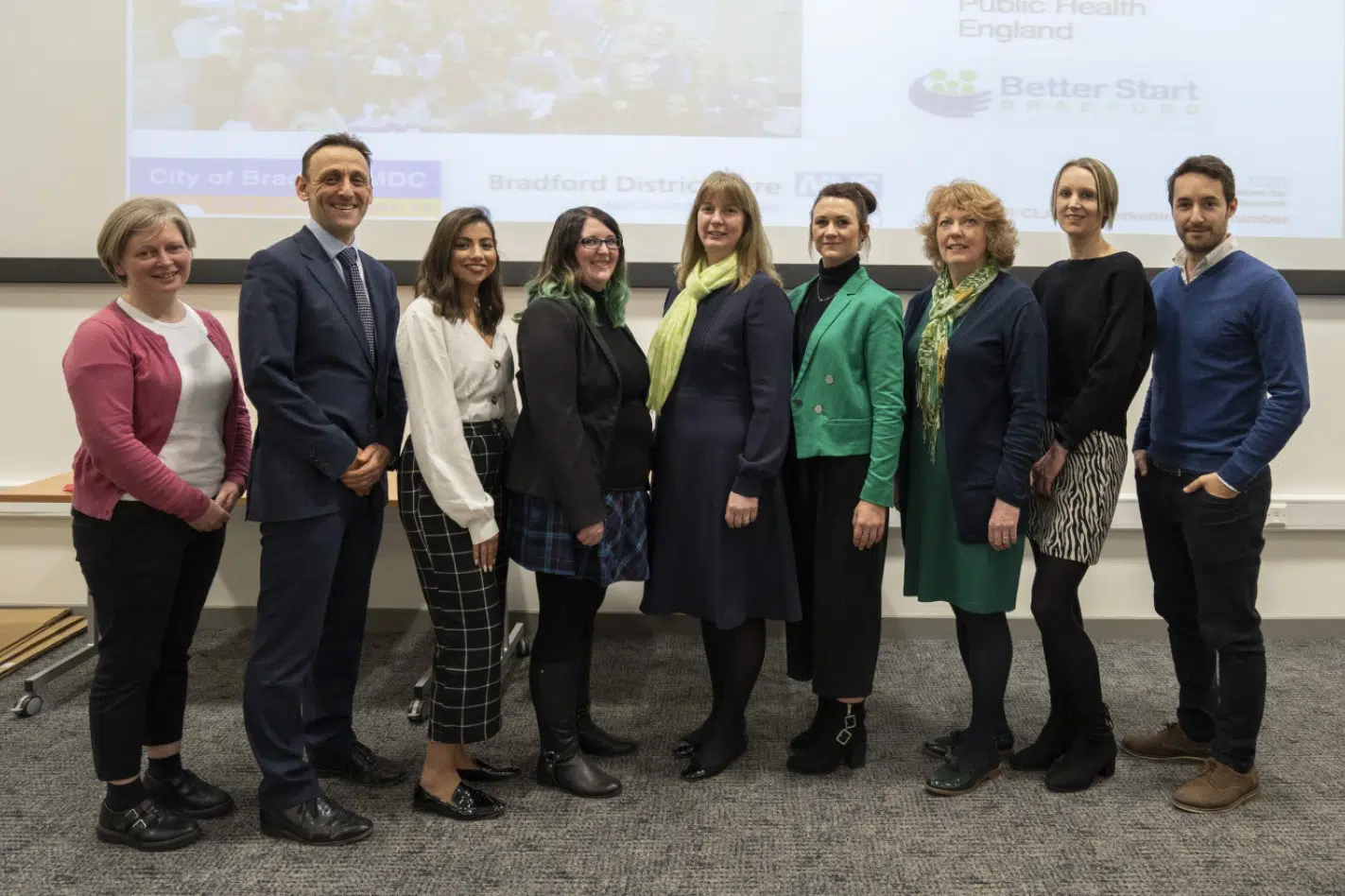16th May 2022
At the start of National Smile Month (16 May – 16 June), we are delighted to share a Voices Blog by Dr Peter Day – Principal Investigator (HABIT study), Professor & Consultant in Paediatric Dentistry, Annalea Staples – Dental Therapist – University of Leeds, and Dr Amrit Bhatti – Research Assistant – University of Leeds.

Oral Health Team at University of Leeds
It’s National Smile Month, so what better time to talk about the importance of oral health and how we can support families to create healthy oral health habits.
In Bradford, around two in every five children have tooth decay by the age of five-years old and, knowing the detrimental impact that tooth decay can have on both children and their families, it is essential that health professionals work together to prevent tooth decay by supporting parents to adopt key oral health behaviours such as brushing twice a day with a fluoridated toothpaste and limiting the intake of sugary food and drinks.
In some parts of the country, accessing a dentist can be challenging and, in Bradford, the reality is that less than 5% of children see a dentist by their first birthday. As so few children access a dentist in this important stage of a child’s development, Health Visitors play a fundamental role in the prevention of tooth decay by supporting parents to implement good oral health habits at home.
To support these conversations between Health Visitors and parents, our project HABIT (Health visitors delivering Advice in Britain on Infant Toothbrushing), co-developed with Health Visitors and parents in Bradford and underpinned by behaviour change theory, aims to support the health visiting team to have effective oral health conversations with parents.
As part of the HABIT project, Health Visitors are invited to a training session which includes an oral health knowledge refresher as well as focusing on how to have effective HABIT oral health conversations with families. To support the conversations, several parent-facing HABIT resources have been developed including 6 videos, each covering a different oral health topic, a leaflet, and a website as well as models of teeth and toothbrushes to facilitate toothbrushing demonstrations.
To get feedback on the HABIT project, eight Health Visitors kindly agreed to participate in focus groups with a researcher. Some of our findings from these interviews included positive feedback on the resources, with Health Visitors saying they found them informative, simple, and visually pleasing. Health Visitors also emphasised the importance of the intervention being delivered at the appropriate time when the child’s teeth were starting to erupt. With the feedback we received from both Health Visitors and parents, we are continuing to make refinements to the HABIT project to make it more accessible to parents and families across Bradford.
Find out more about National Smile Month – https://www.dentalhealth.org/national-smile-month
Find out more about HABIT (website is currently being upgraded) – https://www.toothbrushinghabit.com
HABIT Qual paper – https://bmcprimcare.biomedcentral.com/articles/10.1186/s12875-022-01659-1
Dr Peter Day – Principal Investigator (HABIT study), Professor & Consultant in Paediatric Dentistry
Annalea Staples – Dental Therapist – University of Leeds
Dr Amrit Bhatti – Research Assistant – University of Leeds
Resources to support Health Visitors:
- How health professionals can prevent tooth decay in children under 5 as part of ensuring every child has the best start in life
- Dental section in the red book (Personal Child Health Record)
- Training on oral health in Healthy Child Programme Health Education England e-Learning for Health resource:
References
- Health Social Care Information Centre. Children’s Dental Health Survey 2013: Health and Social Care Information Centre London, 2013.
- England PH. National Dental Epidemiology Programme for England: Oral Health Survey for 5-
- Sheiham A, James WP. Diet and Dental Caries: The Pivotal Role of Free Sugars Reemphasized. J Dent Res 2015;94(10):1341-7. doi: 10.1177/0022034515590377 [published Online First: 2015/08/12]


